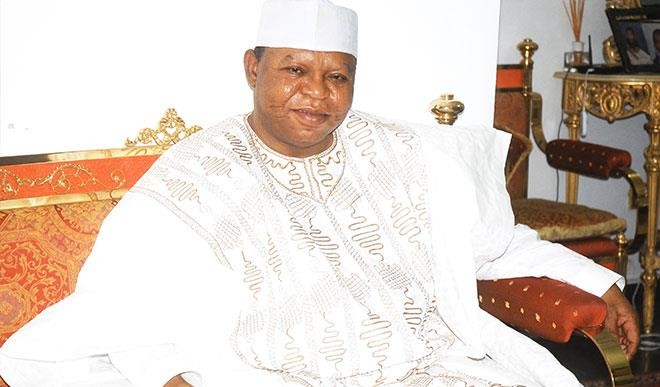Audu: ‘Constitution didn’t envisage situation’
The news of the death of Prince Abubakar Audu, the All Progressives Congress (APC) candidate in the Kogi State governorship election, on Sunday, November 22, was received with shock and sadness in several quarters. The main question agitating the minds of everybody is the legal implication regarding the inconclusive Kogi State governorship elections at the […]


The news of the death of Prince Abubakar Audu, the All Progressives Congress (APC) candidate in the Kogi State governorship election, on Sunday, November 22, was received with shock and sadness in several quarters.
The main question agitating the minds of everybody is the legal implication regarding the inconclusive Kogi State governorship elections at the time of his death.
According to Festus Okoye, a Kaduna-based constitutional lawyer, the situation presents a very serious constitutional mega challenge because framers of the 1999 Constitution, by Section 181, only envisaged a situation whereby someone has been duly elected governor but dies before taking oath of allegiance and oath of office.
The constitution did not envisage such scenario when voting has taken place and election declared inconclusive.
It is, according to Festus Keyamo, a strange and novel constitutional scenario. It has never happened in our constitutional history that an election has been partially conducted and the candidate dies.
Section 36 (1) of the Electoral Act 2010 (as amended) gives INEC power to countermand an election (where a candidate dies); the commission can stop the election and conduct it within 14 days.
In this instance, however, election has been conducted and what only remains is the supplementary and for INEC to make a return.
Prince Audu died after the announcement of the results by INEC and after the commission had declared the elections inconclusive.
Okoye said that INEC must go ahead to conduct the supplementary election and conclude the elections it has started. This is because “in the eyes of the law, Prince Abubakar Audu is still alive, he cannot be replaced under the provisions of the law”.
Section 187 (1) of the 1999 Constitution renders invalid the nomination of a candidate that did not nominate a running mate.
According to Section 187 (2), any reference to a governor is also a reference to a deputy governor.
The ticket is that of the political party, (in this case the APC) and there is still a validly nominated candidate within the ticket.
According to Festus Keyamo, this is a hybrid situation between what happened in the case of Atiku Abubakar/Boni Haruna in 1999 and the provision of Section 33 of the Electoral Act, 2010.
“In the case of Atiku Abubakar/Boni Haruna [which is now a clear constitutional provision of Section 181(1) of the 1999 Constitution (as amended)] the Supreme Court held, in effect, that “if a person duly elected as governor dies before taking and subscribing to the oath of allegiance and oath of office, or is unable for any reason whatsoever to be sworn in, the person elected with him as deputy governor shall be sworn in as governor and he shall nominate a new deputy governor who shall be appointed by the governor with the approval of a simple majority of the house of assembly of the state.”
In the case of Section 33 of the Electoral Act 2010, it provides, in effect, that if a person has been duly nominated as a candidate of his party and he dies before the election then the political party has the right to replace him with another candidate and not necessarily the deputy governorship candidate.
Now, does the Kogi situation fit into Section 181(1) of the Constitution as quoted above or Section 33 of the Electoral Act also mentioned above?
Both Okoye and Keyamo share the same position in the Kogi situation as it fits more into Section 181(1) of the 1999 Constitution (as amended) and as such James Abiodun Faleke automatically becomes the governorship candidate of the APC.
Even though the election is inconclusive, votes have been counted and allocated to parties and candidates. As a result the joint ticket of Audu/Faleke has acquired some votes already. James Abiodun Faleke is as much entitled to those votes already counted as the late Abubakar Audu. He has a right to cling to those votes going into the supplementary election.
However, under Section 181 of the constitution, the deputy governor will only be sworn in as governor after he has been duly elected but today the election is inconclusive. Until the supplementary election, Faleke cannot be sworn in. If the supplementary election is conducted and APC wins, INEC shall regard Faleke as the Kogi State governor, then he (Faleke) will now nominate a deputy.
There is only one problem, though: Who nominates Faleke’s Deputy? Unlike Section 181(1) of the 1999 Constitution, he cannot approach the House of Assembly of the state to approve a nomination by him of a deputy. This is because, in reality, he is not duly elected yet. Therefore it is only reasonable to conclude that it is APC (Faleke’s political party) that should submit the name of a fresh deputy governorship candidate to INEC for the supplementary election.
The Kogi governorship election scenario has therefore thrown up another instance for constitutional amendment.
